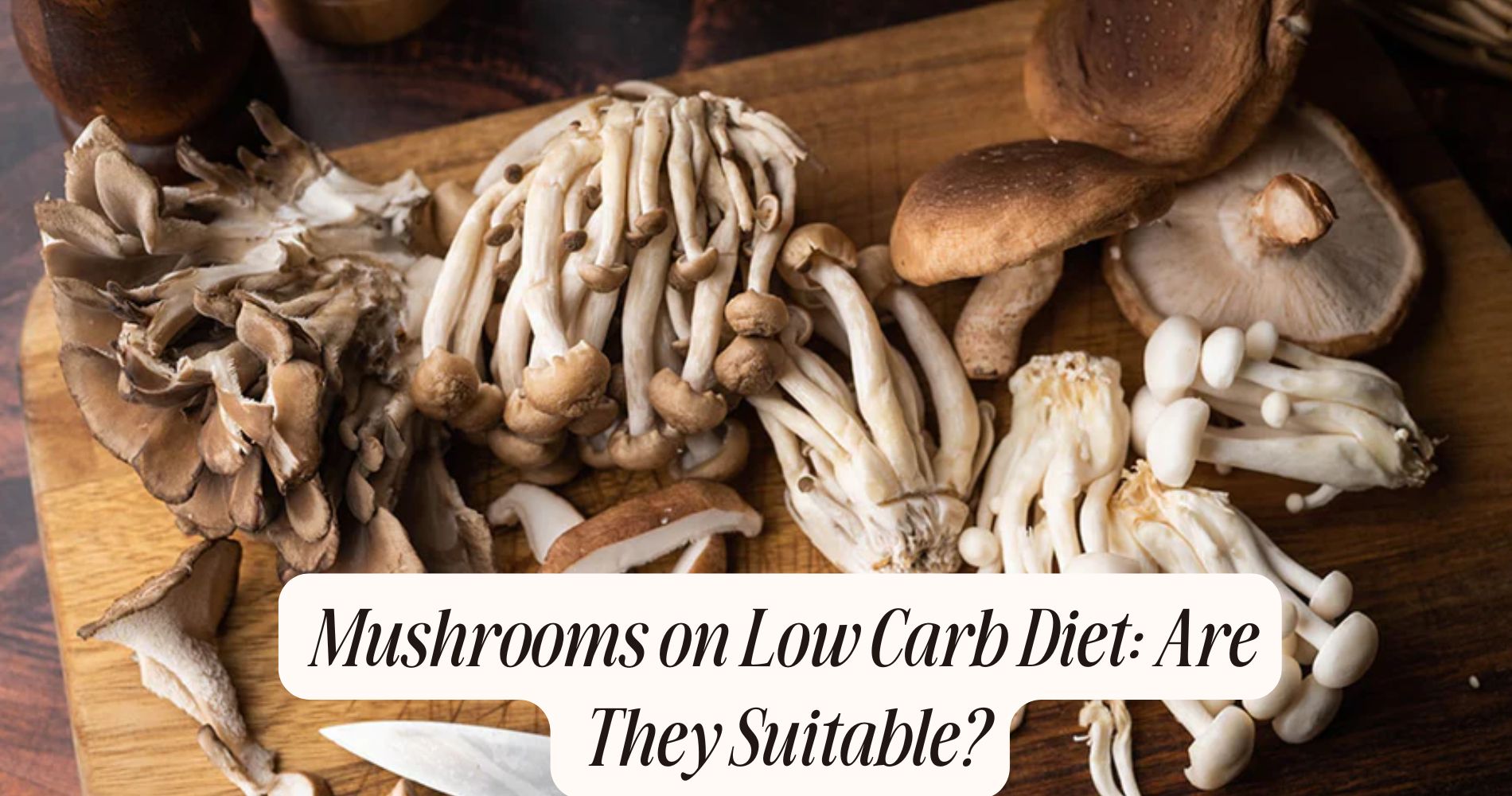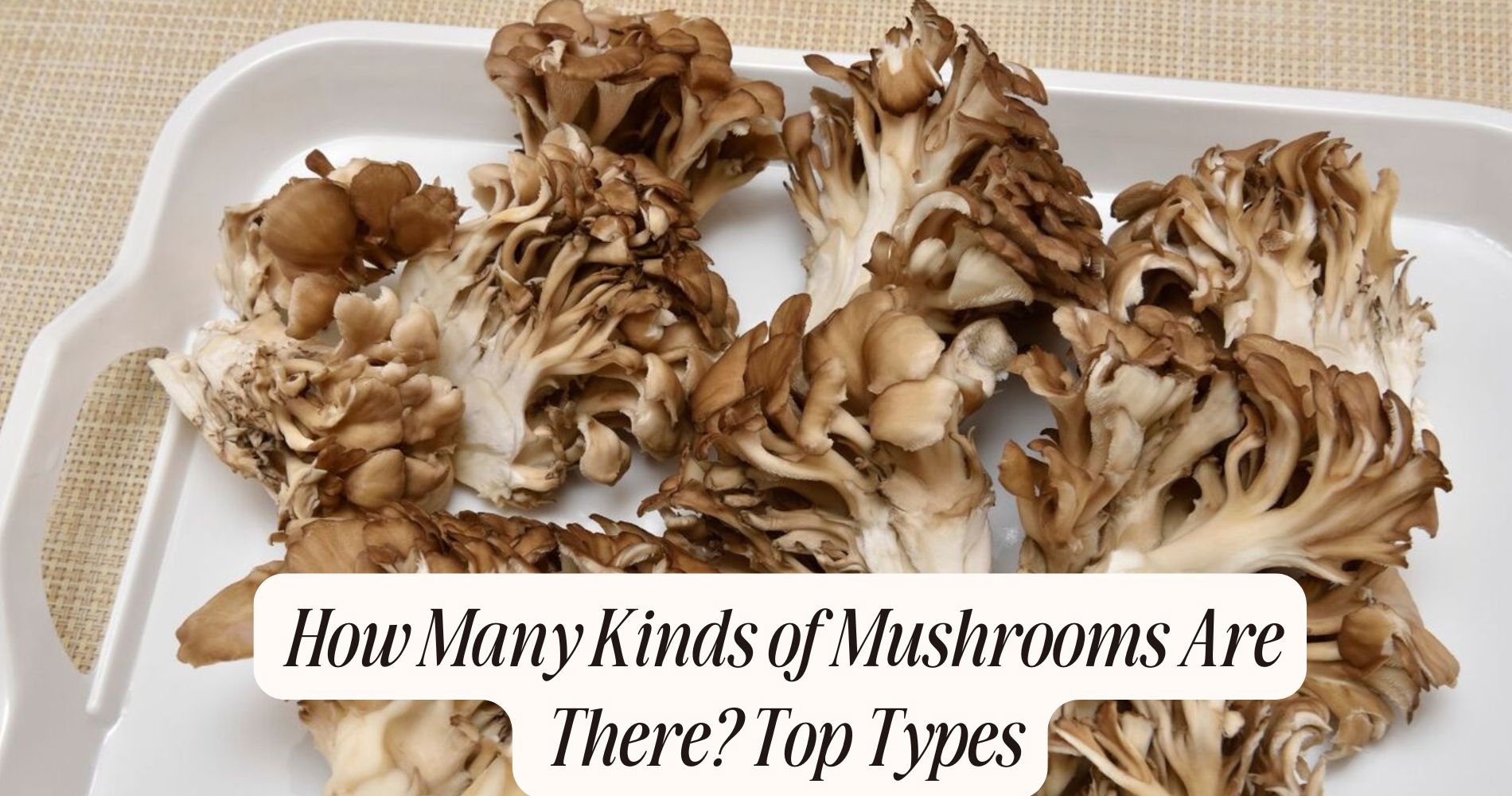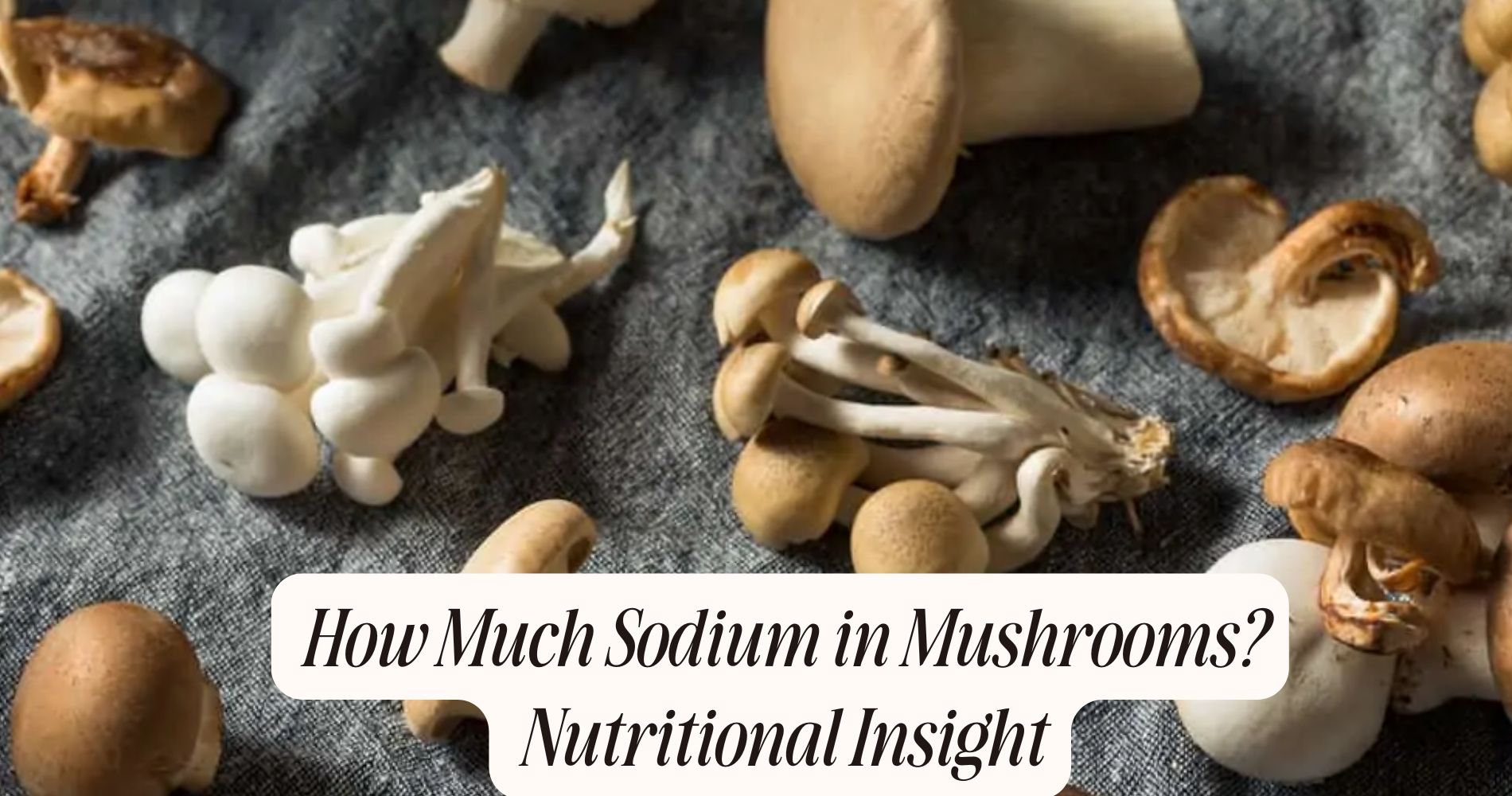
Mushrooms on Low Carb Diet: Are They Suitable?
Nutritional Profile of Mushrooms
When you think about low-carb diet options, have you considered the nutritional value of mushrooms? These fascinating fungi come in various mushroom varieties, each offering unique flavors and health benefits. For instance, button mushrooms are mild and versatile, while shiitake mushrooms add a rich, umami flavor to dishes.

Mushrooms are low in calories and carbohydrates, making them an excellent choice for low-carb meal plans. They're rich in vitamins like B vitamins and minerals such as selenium and potassium. These nutrients play essential roles in energy metabolism and immune function, enhancing your overall health.
In terms of culinary uses, mushrooms can be sautéed, grilled, or used in soups and salads. They can also serve as a meat substitute in various dishes, providing a satisfying texture without the added carbs. Additionally, their high water content helps keep you hydrated, which is important on a low-carb diet.
Incorporating different mushroom varieties into your meals not only diversifies your diet but also boosts your nutritional intake. So, the next time you're planning your low-carb meals, don't overlook mushrooms as a flavorful and nutritious option.
Carbohydrate Content Overview
Mushrooms aren't just a flavorful addition to your meals; they also have a low carbohydrate content that makes them suitable for low-carb diets. When you look at carbohydrate comparison among various mushroom varieties, you'll find that most are low in carbs, making them ideal for your dietary needs.
For instance, a cup of sliced button mushrooms contains about 2.3 grams of carbohydrates, while portobello mushrooms have roughly 3.9 grams per cup. This low carbohydrate content is largely due to their high water content and fiber.
Shiitake mushrooms offer about 3.7 grams of carbs per cup, and even exotic varieties like maitake and enoki fall within a similar range. This means you can enjoy a variety of flavors without worrying about excess carbs.

Additionally, mushrooms provide essential nutrients such as vitamins D and B, along with minerals like selenium and potassium. If you're monitoring your carb intake, you can confidently incorporate various mushroom types into your meals, knowing they won't derail your dietary goals.
Types of Mushrooms
A wide variety of mushrooms can elevate your meals while keeping your carb count low. Common mushroom varieties include button, cremini, shiitake, and portobello. Each type brings its unique flavor and texture, making them versatile for different culinary uses.
Button mushrooms, often the most familiar, have a mild flavor and can be easily added to salads, soups, or stir-fries. Cremini mushrooms, also known as baby bellas, offer a deeper flavor and work well in sauces or roasted dishes. Shiitake mushrooms add an earthy taste, perfect for enhancing Asian-inspired recipes or hearty stews.
Portobello mushrooms, with their meaty texture, can serve as a satisfying substitute for burgers or sandwich fillings.
You can also explore specialty varieties like oyster and enoki mushrooms. Oyster mushrooms have a delicate flavor and are great in pasta dishes, while enoki mushrooms bring a crunchy texture to salads or ramen.
Health Benefits of Mushrooms
Mushrooms pack a punch when it comes to nutrient density, offering essential vitamins and minerals while being low in calories.
Their antioxidant properties help combat oxidative stress, supporting overall health and wellness.
Including mushrooms in your diet can enhance your nutrient intake and contribute to a balanced lifestyle.
Nutrient Density Benefits
Packed with essential nutrients, mushrooms stand out as a powerhouse of health benefits, especially for those on a low carb diet. These versatile fungi come in various mushroom varieties, each offering unique nutrient profiles. For instance, shiitake mushrooms are rich in B vitamins, while portobello mushrooms provide a good source of potassium. This diversity means you can easily find a variety that suits your taste while maximizing nutrient intake.
Mushrooms are low in calories yet high in fiber and protein, which can help you feel full longer, aiding in weight management. Additionally, they contain essential minerals like selenium and copper, which play vital roles in immune function and energy production.
The fiber in mushrooms can also enhance nutrient absorption, making your body more efficient at utilizing the vitamins and minerals from your overall diet.
Including mushrooms in your meals not only adds flavor but also boosts your nutrient density without spiking your carb intake. By incorporating different mushroom varieties into your low carb diet, you can enjoy a wide range of health benefits while staying aligned with your dietary goals.
Antioxidant Properties Explained
How can something so small pack such a powerful antioxidant punch? Mushrooms are rich in various antioxidant compounds that help combat oxidative stress in your body. This is vital, as oxidative stress can lead to chronic diseases and premature aging. By including mushrooms in your low-carb diet, you're not just adding flavor; you're also enhancing your overall health.

Research shows that mushrooms contain significant levels of ergothioneine and glutathione, both potent antioxidants. These compounds work to neutralize free radicals, reducing inflammation and potentially lowering your risk of diseases such as cancer and heart disease.
Furthermore, the health benefits of mushrooms extend beyond their antioxidant properties. They also provide essential nutrients, including vitamins and minerals, that support immune function.
Incorporating a variety of mushrooms, such as shiitake, maitake, and oyster, can maximize these health benefits. Each type offers unique profiles of antioxidants, meaning you can tailor your mushroom intake for best health.
Cooking Methods for Mushrooms
When cooking mushrooms, sautéeing is a popular technique that enhances their natural flavors while retaining moisture.
Grilling is another method that can add a smoky depth, creating a delicious contrast in your low-carb meals.
Understanding these techniques helps you maximize the taste and texture of mushrooms in your dishes.
Sautéing Techniques Explained
Sautéing mushrooms is a fantastic way to enhance their natural flavors while keeping them low in carbs. This cooking method involves quickly cooking the mushrooms in a small amount of fat, like olive oil or butter, over medium to high heat. By using effective sautéing techniques, you can achieve a deliciously caramelized exterior, which adds depth to the taste.
To get started, verify your mushrooms are dry and cut into even slices to promote uniform cooking. Heat your pan before adding the fat, allowing it to shimmer but not smoke. Once the fat is hot, add the mushrooms in a single layer. Avoid overcrowding the pan, as this can lead to steaming instead of sautéing, which diminishes flavor enhancement.
Stir occasionally, letting them cook until they turn golden brown. This usually takes about 5-7 minutes. Feel free to season with salt, pepper, or herbs during the last minute of cooking to boost the flavor even more.
Sautéed mushrooms can then be enjoyed on their own or used to elevate other low-carb dishes, making them a versatile addition to your diet.
Grilling for Flavor Boost
Grilling mushrooms offers a unique way to infuse them with smoky flavors while retaining their low-carb appeal. This cooking method not only enhances their natural taste but also adds a delightful texture that complements a variety of dishes.
When you grill mushrooms, choose techniques like skewering or using a grill basket to prevent them from falling through the grates.
Marinating your mushrooms before grilling can further boost flavor enhancement. Simple marinades made from olive oil, garlic, and herbs can elevate their taste profile without adding carbs.
It's important to monitor the cooking time; overcooking can lead to a rubbery texture. Aim for about 5-7 minutes on medium heat, turning them halfway through for even cooking.
Whether you're using portobello, shiitake, or button mushrooms, grilling is a fantastic way to enjoy their health benefits. Not only are they low in calories and carbohydrates, but mushrooms also provide essential nutrients and antioxidants.
Incorporating Mushrooms Into Meals
Mushrooms can be a fantastic addition to your low carb meals, offering flavor, texture, and nutritional benefits without piling on the carbs. They're low in calories and packed with essential nutrients like B vitamins, selenium, and antioxidants.
Whether you're sautéing, grilling, or roasting, mushrooms enhance the flavor profiles of your dishes while keeping your carb count in check.
When it comes to meal pairings, mushrooms work beautifully with various ingredients. Try incorporating them with leafy greens, such as spinach or kale, to boost your fiber intake. They also complement proteins like chicken, beef, or tofu, adding a rich, umami flavor that elevates your meal.

If you enjoy spices, mushrooms can soak up seasonings like garlic, thyme, or rosemary, creating a depth of flavor that enhances any dish.
For a hearty option, consider using mushrooms as a base for sauces or soups, providing bulk without excess carbs. Experimenting with different mushroom varieties, such as shiitake, portobello, or cremini, can further diversify your meals.
Ultimately, incorporating mushrooms not only enriches your low carb diet but also makes your meals more satisfying and delicious.
Mushroom Recipes for Low Carb Diet
If you're looking to elevate your low carb meals, incorporating mushrooms into your recipes offers a variety of delicious options.
For starters, stuffed mushrooms make an excellent appetizer or side dish. You can fill large mushroom caps with a mixture of cream cheese, garlic, herbs, and even some crumbled bacon for added flavor. This dish isn't only satisfying but also low in carbs, allowing you to indulge without guilt.
Another fantastic option is mushroom risotto. Although traditional risotto often uses rice, you can substitute cauliflower rice for a low carb twist.
Sauté mushrooms with onions, garlic, and a splash of white wine, then mix in the cauliflower rice. Add vegetable broth gradually, stirring until creamy. Finish with a sprinkle of Parmesan cheese for an irresistible flavor.
These recipes highlight the versatility of mushrooms in a low carb diet. They provide essential nutrients while being low in carbohydrates, making them a smart choice for your meals.
Experiment with different types of mushrooms and seasonings to keep your dishes exciting and satisfying. You'll find that mushrooms can truly elevate your culinary experience while adhering to your dietary goals.
Common Myths About Mushrooms
The fascination with mushrooms often leads to a slew of misconceptions that can cloud their true value. One common myth is that all mushrooms are toxic. While some wild varieties can indeed be harmful, most mushrooms consumed today—like button, shiitake, and portobello—are safe and nutritious. This myth debunking is significant, especially when considering mushrooms as a low-carb option.

Another misconception stems from cultural beliefs that mushrooms are unhealthy or even associated with negative outcomes. In reality, mushrooms are low in calories and high in nutrients, making them an excellent addition to your diet. They provide essential vitamins, minerals, and antioxidants, which can support overall health.
Some folks also think mushrooms have no protein. Contrary to this belief, mushrooms do contain some protein, albeit less than meat or legumes. They can still contribute to your daily protein intake, especially when combined with other low-carb foods.
It's important to separate fact from fiction. By understanding the truths behind these common myths, you can appreciate mushrooms' role in a low-carb diet and make informed choices for your health.
Final Thoughts on Mushrooms
Understanding the truth about mushrooms can greatly enhance your low-carb diet. These fungi aren't only low in carbohydrates but also packed with nutrients, making them a valuable addition to your meals. Their culinary versatility allows you to incorporate them in various dishes, from stir-fries to salads, without worrying about exceeding your carb limit.
You'll find a wide range of mushroom varieties, each offering unique flavors and textures. For instance, shiitake mushrooms add a rich, umami taste, while portobellos can serve as a satisfying meat substitute in burgers. These options guarantee you won't get bored with your meals, keeping your diet enjoyable and sustainable.
Moreover, mushrooms are rich in antioxidants and essential vitamins, such as B vitamins and vitamin D, which can support overall health. By including a variety of mushrooms in your diet, you can reap the benefits of these nutrients while maintaining your low-carb lifestyle.
Low-Carb Wellness Made Easy with Well Gummies SUPER MUSHROOM GUMMIES
Curious about including mushrooms on low carb diet? Well Gummies SUPER MUSHROOM GUMMIES are the perfect way to enjoy the benefits of mushrooms without worrying about carbs. Packed with ten functional mushrooms, these vegan gummies support energy, focus, and immune health, fitting seamlessly into your low-carb lifestyle.
With a delicious wild berry flavor, they’re as enjoyable as candy but completely guilt-free. No jitters, no crashes—just a simple, convenient way to stay on track with your health goals. Try Well Gummies today!
Frequently Asked Questions
Can Mushrooms Help With Weight Loss on a Low Carb Diet?
Mushroom varieties, like portobello and shiitake, can aid your weight loss efforts on a low carb diet. They're low in calories, high in fiber, and packed with nutrients, enhancing your meals while promoting satiety.
Are There Any Side Effects of Eating Mushrooms Daily?
Eating mushrooms daily can offer nutritional benefits, but some might experience digestive health issues like bloating or gas. It's important to listen to your body and adjust your intake if you notice any discomfort.
Do Mushrooms Contain Any Allergens?
Yes, mushrooms can contain allergens. While most people tolerate them well, some individuals have common sensitivities, which may lead to allergic reactions. It's important to observe how your body reacts when consuming mushrooms regularly.
How Do Mushrooms Compare to Vegetables in Low Carb Diets?
Mushroom varieties generally have lower carb content compared to many vegetables, making them a great option for low-carb diets. Their unique flavors and nutritional benefits can enhance your meals while keeping carb intake minimal.
Can I Eat Mushrooms Raw on a Low Carb Diet?
You can eat raw mushrooms on a low carb diet. They offer nutritional benefits, like antioxidants, and can enhance low carb recipes. Just verify you wash them thoroughly to maximize their health advantages while enjoying their flavor.
Conclusion
Mushrooms are an excellent addition to a low-carb diet. With their low carbohydrate content and rich nutritional profile, they offer a variety of health benefits, including antioxidants and essential vitamins. Whether you enjoy them sautéed, grilled, or in soups, mushrooms can enhance your meals without compromising your carb goals. Don't let common myths deter you; embrace the versatility of mushrooms and explore creative ways to incorporate them into your dishes for a nutritious boost.




